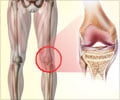About
Andropause is the male equivalent of female menopause. It is generally characterized by a decline in sexuality and energy due to the decreasing level of male hormones, such as testosterone.
Are you a middle–aged male whose enthusiasm is slowly waning and whose middle name is ‘irritable’? Take care you could be on the threshold of ‘Male Menopause’!
We all know about the female menopause but how many of us have heard of andropause, considered by some as the ‘male menopause’?
‘Mid-life crisis’ is the euphemism of choice that is used to refer to the symptoms of a ‘waning’ male. Today, it has been widely accepted by the scientific world that males encounter ‘andropause’- a term that refers to the paucity of vital male hormones. This, in turn, leads to an array of symptoms -from feeling ‘blue’ to low libido.
Andropause refers to the biological changes that men in mid-life experience; some like to compare this state with the female menopause. These changes are not universal and males continue to reproduce well into their old age.
#$#Men do not quit playing because they grow old; they grow old because they quit playing.#$# - Oliver Wendell Holmes
Actually the term ‘male menopause’ is something of a misnomer, because ‘menopause’ implies that the reproductive ‘machinery’ comes to a grinding halt. But it is important to know that such a ‘shut down’ occurs only in females. Males, however, may experience bouts of impotence.
Andropause was first described medically, in the 1940#$#s, but was not accepted by the medical fraternity until recently. The term, ‘andropause’ is not recognized by WHO and its ICD-10 medical classification.
Approximately, 25 million American males aged between 40 and 55 years are currently experiencing the symptoms of andropause.
During Andropause, the levels of the hormones testosterone and dehydroepiandrosterone are diminished. As a consequence of this drop, the individual may experience -loss of concentration, low energy levels, fatigue, change in attitude, depression, low libido, and mood swings. Even healthy males experience these symptoms. It is not clear if hereditary factors, environment or lifestyle are associated with andropause.
Research reveals that low
Andropause was an ‘under diagnosed’ and ‘under treated’ health condition. Today there is a lot of improvement in understanding and managing this condition. Simple blood tests diagnose this disorder. Treatment is carried out through Hormone Replacement Therapy (HRT).












